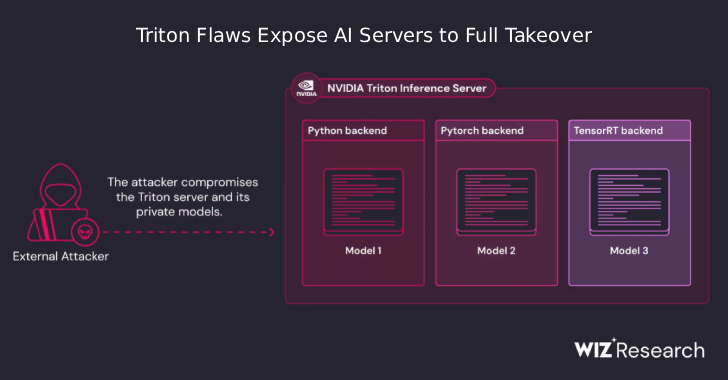
Leveraging CJIS Compliance in an Age of Policing Tech Innovations
The landscape of law enforcement is undergoing a profound transformation, driven by rapid technological advancements. As police agencies embrace cutting-edge tools and solutions to enhance their capabilities, they must also grapple with the critical need for data security and privacy. In this era of policing tech innovations, the Criminal Justice Information Services (CJIS) compliance framework emerges as a vital safeguard, ensuring that law enforcement agencies can harness the power of technology while safeguarding sensitive information.
The Changing Face of Policing
Policing has come a long way from traditional patrolling and manual record-keeping. Today, law enforcement agencies are increasingly turning to innovative technologies to improve efficiency, respond to emergencies more effectively, and make communities safer. These innovations encompass a wide range of tools, from body-worn cameras and predictive analytics to facial recognition systems and cloud-based data storage.
While these technologies offer immense potential, they also raise concerns about data security and privacy. The mishandling or unauthorized access to sensitive information can have severe consequences, eroding public trust and potentially compromising investigations. This is where CJIS compliance steps in.
Understanding CJIS Compliance
The Criminal Justice Information Services (CJIS) division of the Federal Bureau of Investigation (FBI) plays a pivotal role in maintaining the integrity and security of criminal justice information. CJIS provides a framework and standards for the secure handling, storage, and transmission of sensitive criminal justice data.
To put it simply, CJIS compliance ensures that law enforcement agencies adhere to a set of stringent security protocols when dealing with criminal justice information. This encompasses a wide array of data, from fingerprints and criminal history records to information related to arrests and incidents.
CJIS compliance is not optional. It is mandatory for all law enforcement agencies that access and utilize CJIS systems. This mandate extends to technology vendors, third-party service providers, and contractors who handle CJIS data on behalf of law enforcement agencies.
The Importance of CJIS Compliance
In an age where data breaches and cyberattacks are becoming increasingly sophisticated, CJIS compliance is of paramount importance. Here’s why:
- Protecting Sensitive Data
Criminal justice information is highly sensitive and confidential. It includes personal information of individuals involved in law enforcement matters. Ensuring CJIS compliance helps shield this data from unauthorized access or breaches, safeguarding the privacy of citizens and the integrity of investigations.
- Maintaining Public Trust
Trust is the cornerstone of effective law enforcement. When agencies adhere to CJIS compliance standards, they send a clear message to the public that they take data security seriously. This commitment to transparency and accountability fosters trust within communities.
- Legal Requirements
CJIS compliance is not just a good practice; it’s a legal requirement. Failure to meet CJIS security standards can result in penalties, legal consequences, and even the loss of access to crucial criminal justice information.
Challenges in Achieving CJIS Compliance
While CJIS compliance is essential, achieving and maintaining it can be a complex endeavor. Police agencies face several challenges:
- Cost Constraints
Implementing the necessary security measures and infrastructure can be costly. Smaller law enforcement agencies, in particular, may struggle to allocate the resources required for CJIS compliance.
- Evolving Threat Landscape
Cyber threats are constantly evolving, and law enforcement agencies must continually adapt to new risks and vulnerabilities. Staying ahead of these threats while adhering to CJIS compliance standards is an ongoing challenge.
- Integration with New Technologies
As law enforcement agencies adopt new technologies, they must ensure that these innovations are CJIS compliant. This involves rigorous testing and evaluation to ensure that data remains secure.
Leveraging CJIS Compliance in Policing Tech Innovations
Despite the challenges, CJIS compliance is not a roadblock to technological innovation in law enforcement. In fact, it can be a catalyst for responsible and effective adoption of new technologies. Here’s how:
- Prioritize Cybersecurity Education
Training and education are key components of CJIS compliance. Police agencies should invest in cybersecurity training for their personnel to ensure that everyone understands the importance of data security and their role in maintaining it.
- Collaborate with Technology Partners
Law enforcement agencies should work closely with technology vendors and service providers who specialize in CJIS-compliant solutions. These partners can help agencies navigate the complex world of data security and ensure that their systems meet CJIS standards.
- Regular Audits and Assessments
Regular audits and assessments of data security protocols are essential to maintaining CJIS compliance. Agencies should conduct thorough evaluations of their systems to identify vulnerabilities and address them promptly.
- Share Best Practices
Law enforcement agencies should actively collaborate and share best practices for achieving and maintaining CJIS compliance. This can include sharing successful strategies, tools, and lessons learned with peers in the field.
- Leverage Cloud Solutions
Cloud-based technologies can offer cost-effective and secure solutions for data storage and management. Many cloud providers offer CJIS-compliant services, reducing the burden on agencies to build and maintain their infrastructure.
The Future of Policing and CJIS Compliance
As technology continues to advance, the role of CJIS compliance in law enforcement will only become more critical. Agencies that embrace these standards and prioritize data security will be better equipped to harness the benefits of policing tech innovations while safeguarding the trust and privacy of the communities they serve.
In conclusion, CJIS compliance is not a hindrance to progress but a cornerstone of responsible and effective law enforcement in the digital age. By understanding its importance, addressing the associated challenges, and embracing best practices, law enforcement agencies can navigate the evolving landscape of policing tech innovations while upholding the highest standards of data security and privacy.
Contact Cyber Defense Advisors to learn more about our CJIS Compliance solutions.





